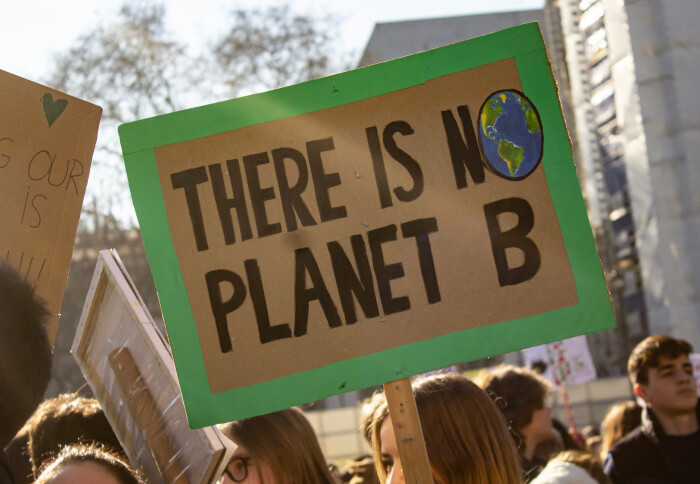Study shows climate distress related to anxiety and action in young people

Imperial researchers have carried out a study to understand the psycho-social impacts of climate crisis on young people in the UK.
The study found that distress over climate change is related to many difficult emotions in young people – even in the absence of direct climate-related experience. It can, though, also motivate them to take positive climate actions.
The work, led by Climate Cares at the Institute of Global Health Innovation, Imperial College London, was conducted with researchers at King’s College London and Queensland University, Australia.
In 2020, researchers surveyed 539 young adults in the United Kingdom, aged 16 to 24, about their experience of ‘climate distress’. They measured their distress over the changing climate and the range of emotions they felt in response to climate change, their general mental health and wellbeing, and their sense of agency to respond to climate change. They also asked how climate change has positively or negatively affected their life and whether they are involved in pro-environmental and climate actions.
Climate distress and mental health
The study’s findings suggest that existing mental health issues may make a person more vulnerable to climate distress, or climate distress may exacerbate mental health conditions. While the majority of respondents were moderately distressed, about 10 per cent of the respondents reported that they were highly distressed. This was striking when the survey was conducted in 2020, in the midst of the global pandemic, particularly when this highly distressed group worried about how climate change would impact their future more frequently than any other issue, including their finances, education, relationships, jobs or politics.
Though few of these individuals had experienced climate extremes, they reported being upset by environmental degradation of places they cared about, frustration over the lack of action on climate change, a lack of personal agency, concern over their future and feelings of guilt and shame. However, highly distressed respondents were also more likely to report finding meaning and fulfilment from engaging in climate action.
Actions that are helpful for the climate can also help our own health Dr Emma Lawrance Institute of Global Health Innovation
Both positive emotions, such as hope, and more difficult ones, such as anger and frustration were linked to climate activism. Guilt, shame, sadness and fear were associated with reduced action-taking.
One of the Imperial study authors, Dr Emma Lawrance, Mental Health Lead and Climate Cares Lead at the Institute of Global Health Innovation, said: “We know that many people, especially young people are understandably concerned about the climate crisis and the lack of systemic action from leaders supposed to protect their future. In some people the feelings of distress can galvanise them into action, while in others it becomes overwhelming and negatively impacts their mental health and wellbeing.
“Our work highlights the need to develop tools that will help young people to support their mental health and sustain action to mitigate the climate crisis. Actions that are helpful for the climate can also help our own health, though it is important that the burden is not placed on young people to act alone but on the people in power who need to ensure the use of fossil fuels is reduced as fast as possible. The young people told us clearly that the lack of leadership is an understandable source of hopelessness and distress. Anyone who cares about young people must do everything in their power to move society away from fossil fuel dependence."
Adapted from a press release issued by the open access journal PLOS Global Public Health.
Article text (excluding photos or graphics) © Imperial College London.
Photos and graphics subject to third party copyright used with permission or © Imperial College London.
Reporter
Corinne Farrell
Communications Division
Emily Medcalf
National Heart & Lung Institute